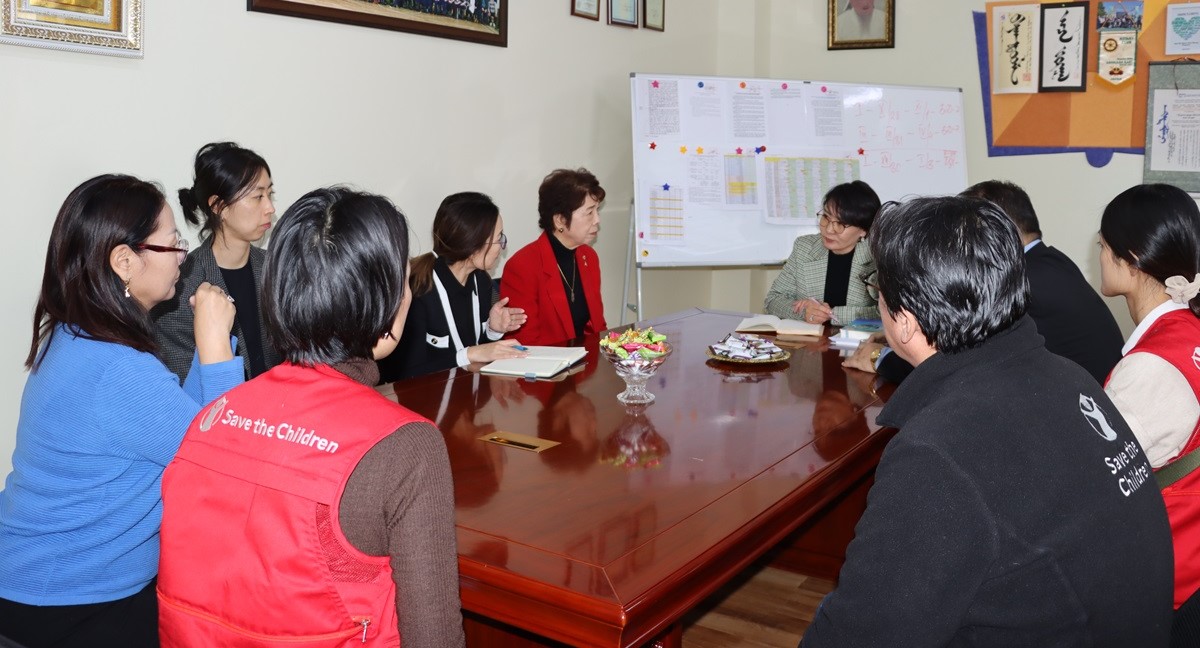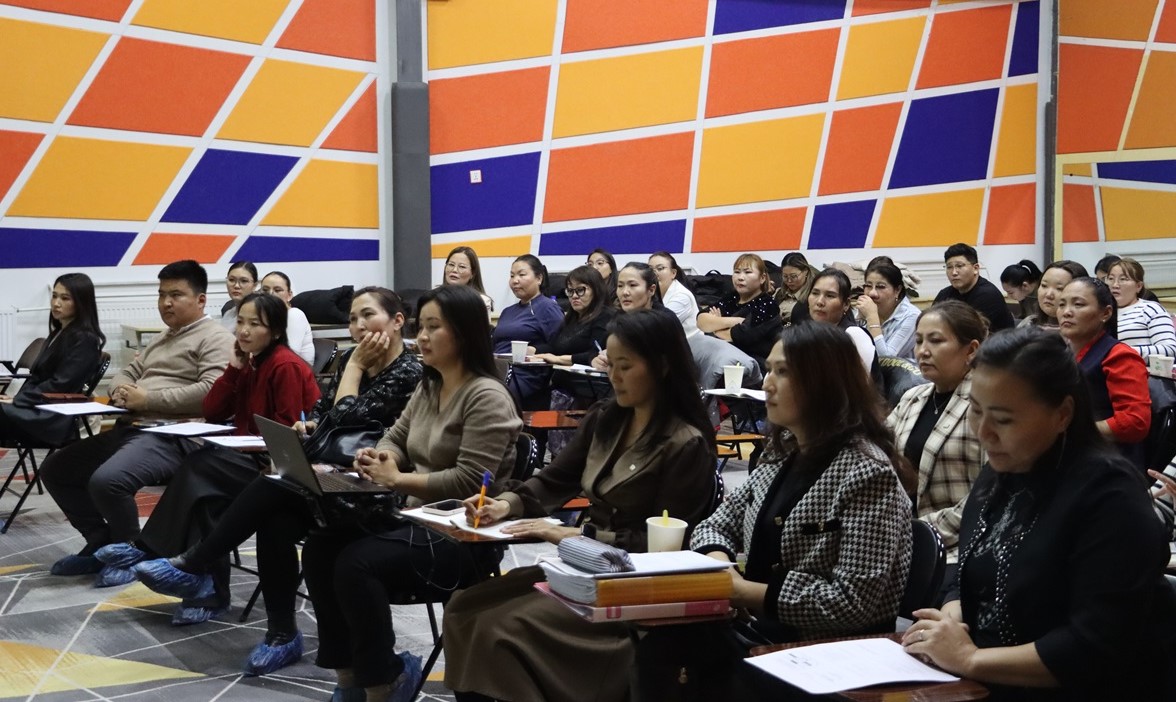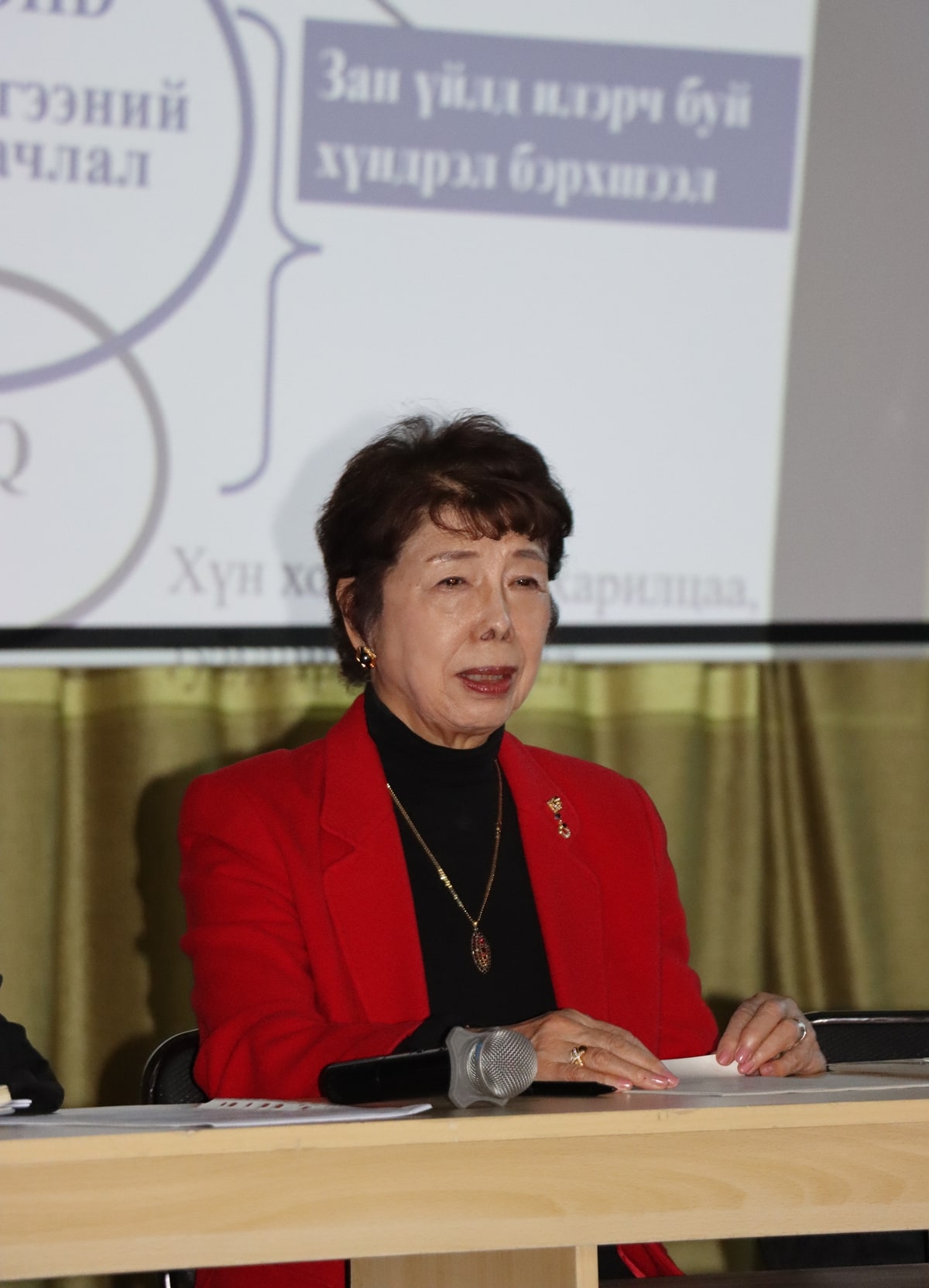The Japanese expert, Tsukimori Hisae conducted lectures for stakeholders involved with Children with Disabilities in Mongolia as part of the project funded by the Ministry of Foreign Affairs of Japan
Professor Tsukimori Hisae, a special education supervisor of the Japan Association for Learning Disabilities, visited Mongolia and gave lectures on 27-28 November 2024, to deliver lectures aimed to support the capacity building of stakeholders involved in activities for children with disabilities in the fields of education, health and welfare.
Professor Tsukimori participated in the project working group meeting at the Mongolia-Japan Centre on 27 November 2024, and gave a lecture on “Basic understanding of early childhood developmental disorders and cooperation between kindergarten and primary school” for administrators and teachers of target kindergartens and family health centers, and members of the Health, Education and Social Protection Committee for Children with Disabilities.


On 28 November 2024, she met with the director of the Amgalan School Complex in the capital Ulaanbaatar and observed some of the school classes. She conducted a lecture,“Support methodology for students with borderline Intellectual Functioning-”, for teachers. This lecture was held face-to-face and also broadcasted live for online audience, including Selenge, Bayankhongor, Khovd, and Uvurkhangai provinces. Professor Tsukimori Hisae is the author of books “Special needs education methodologies to support learning activities-172 innovative ideas based on the examples of primary school” and “Special needs education methodology to support learning activities-based on the examples of lower-secondary school” which have been translated into Mongolian by Save the Children with the support from the Ministry of Foreign Affairs of Japan.
During her visit, Professor Tsukimori Hisae gave a brief interview.
Tsukimori Hisae: The training being conducted in Mongolia has new content and new topics

– Please, tell me about yourself?
-My name is Tsukimori Hisae. I am a consulting professor at the Saibi Education Centre in the Suginami district, Tokyo. I work in the field of supporting and advising new and young teachers in their teaching activities. I previously worked in the postgraduate study department at Waseda University in Japan for 12 years. In addition, I have experience working with the Ministry of Education and Health to introduce government education policies and activities.
– What is your purpose in Mongolia this time. Tell me about your purpose?
– This time, I am coming to Mongolia to conduct training and give lectures with the support of the Japanese Ministry of Foreign Affairs. I conduct many such trainings and lectures in Japan. The number of my trainings must have exceeded 1,000. The trainings conducted in Mongolia have new content and new topics. Today’s training topic is about children with intermediate intelligence, and one in seven children is considered to have intermediate intelligence. I have been preparing to present on this topic.
– Save the Children has translated your books “Special needs education methodologies to support learning activities-172 innovative ideas based on the examples of lower-secondary school” and “Special needs education methodology to support learning activities-based on the examples of lower-secondary school”. Please tell us about these books?
– All pages of my books are illustrated and explained. It is the first book in Japan to have illustrations and explanations on all pages. Special needs education and developmental disorders are difficult to understand. Therefore, in order to make it as clear as possible, all pages are illustrated and explained. 130,000 copies of these books have been printed and sold in Japan.
– Who are the people for whom these training and lectures are intended?
– After arriving in Mongolia, training was conducted for team members. Lectures were given to school teachers. Lectures will also be given to university students and teachers. The content of the training and lectures is discussed with Save the Children and is being conducted according to an agreed program. The reason I came to Mongolia was because while I was in Japan, a group of people from Mongolia met me and invited me to come and give a lecture in Mongolia. That invitation came true, and I came here. For me, I really wanted to give lectures to school teachers.
– Thank you.

